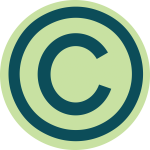Learn about our services
Learn about our legal services for: App Developers, Artists & Graphic Designers, Bloggers & Journalists, Clothing Designers, Entrepreneurs, E-commerce Business People & Startups, Filmmakers & YouTube creators, Public Broadcasting producers,Game Developers, Internet users & Smartphone users, Makers, Musicians, Non-Profits, Photographers, Scholars, Researchers, and Writers and Publishers.

 New Media Rights will be at the KPBS Explore Local Content Program Orientation on September 18th and 19th!
New Media Rights will be at the KPBS Explore Local Content Program Orientation on September 18th and 19th! New Media Rights Executive Director Art Neill, James Thomas (CWSL ’24) and Assistant Director Erika Lee teamed up to write about an issue that many legal minds are grappling with: how does copyright law apply to the training of artificial intelligence? The rampant popularity of generative artificial intelligence in the last few years has resulted in a number of different lawsuits related to AI, including its use, training and the resulting outputs.
New Media Rights Executive Director Art Neill, James Thomas (CWSL ’24) and Assistant Director Erika Lee teamed up to write about an issue that many legal minds are grappling with: how does copyright law apply to the training of artificial intelligence? The rampant popularity of generative artificial intelligence in the last few years has resulted in a number of different lawsuits related to AI, including its use, training and the resulting outputs.  Executive Director Art Neill and Assistant Director Erika Lee recently spoke at the 21st Annual
Executive Director Art Neill and Assistant Director Erika Lee recently spoke at the 21st Annual  New Media Rights recently presented a workshop at the REC Innovation Lab at San Diego Miramar College! Assistant Director Erika Lee and Student Fellow Deanna Maayaa were on site to talk about copyright, contracts, and other legal issues common to startups.
New Media Rights recently presented a workshop at the REC Innovation Lab at San Diego Miramar College! Assistant Director Erika Lee and Student Fellow Deanna Maayaa were on site to talk about copyright, contracts, and other legal issues common to startups. New Media Rights recently worked on the podcast A CRISPR Bite, produced by Corinne Ruff and the GEAP3 Network (Genome Editing and Agricultural Policy, Practice, and Public Perceptions).
New Media Rights recently worked on the podcast A CRISPR Bite, produced by Corinne Ruff and the GEAP3 Network (Genome Editing and Agricultural Policy, Practice, and Public Perceptions). The Copyright Office is currently conducting a study on Artificial Intelligence and Copyright, focusing on the copyright law and policy issues raised by artificial intelligence technology. On October 30th, New Media Rights submitted comments to the Copyright Office about legal issues surrounding the use of copyrightable inputs in training datasets for artificial intelligence, primarily whether or not such training uses are fair use.
The Copyright Office is currently conducting a study on Artificial Intelligence and Copyright, focusing on the copyright law and policy issues raised by artificial intelligence technology. On October 30th, New Media Rights submitted comments to the Copyright Office about legal issues surrounding the use of copyrightable inputs in training datasets for artificial intelligence, primarily whether or not such training uses are fair use. Please join us for a free panel on Artificial Intelligence called "Algorithmic Justice: The New Frontier" on October 12th at 5pm at California Western School of Law. This event will help kick off the school's Law, Justice, and Technology Initiative as well as the IP, Privacy, and Media Law concentration. You can
Please join us for a free panel on Artificial Intelligence called "Algorithmic Justice: The New Frontier" on October 12th at 5pm at California Western School of Law. This event will help kick off the school's Law, Justice, and Technology Initiative as well as the IP, Privacy, and Media Law concentration. You can  Assistant Director Erika Lee and Student Fellow Cristina Meisterling recently presented at the KPBS Explore Local Content Program orientation workshops!
Assistant Director Erika Lee and Student Fellow Cristina Meisterling recently presented at the KPBS Explore Local Content Program orientation workshops! New Media Rights will be at the REC Innovation Lab at San Diego Miramar College on February 28th!
New Media Rights will be at the REC Innovation Lab at San Diego Miramar College on February 28th!  New Media Rights Executive Director Art Neill and Assistant Director Erika Lee were guests on the Pop Culture Dective: Audio Files Podcast!
New Media Rights Executive Director Art Neill and Assistant Director Erika Lee were guests on the Pop Culture Dective: Audio Files Podcast!